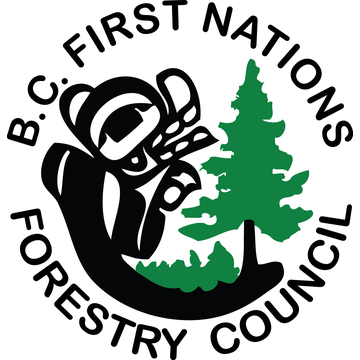
Industry News
News
Forestry Management
BCFNFC calls on Nations to reject process for input into changes to forest policies
August 5, 2021 By BC First Nations Forestry Council

The B.C. Ministry of Forest Lands, Natural Resources Operations and Rural Development (MFLNRORD) has sent a letter to all B.C. First Nations outlining a consultation process regarding modernization of forest policy in B.C., based on the Intentions Paper that was developed internally with no input or consultation with First Nations.
- The Forestry Council was not involved in the development of the content of the letter.
- Several references to the Forestry Council are misleading and misrepresent input received in engagement sessions we have held with First Nations. The proposed changes do not reflect First Nations priorities outlined in the B.C. First Nations Forest Strategy (the Forest Strategy).
“The Forestry Council is concerned with how the province is relating its Intentions Paper to the B.C. First Nations Forest Strategy, when they have not endorsed or committed to implementing it,” tells Dr. Charlene Higgins, CEO of the Forestry Council. “The Intentions Paper makes no reference to the Forest Strategy.”
Chief Bill Williams, president of the Forestry Council, states: “The consultation process and timeline outlined in the letter is disingenuous – we are in a State of Emergency due to wildfires and the province is carrying on with business as usual, trying to ram through major changes to forest policies based on provincial expediency and priorities.”
Higgins adds, “The Forestry Council does not support the top-down approach the province is using to engage with B.C. First Nations on significant and technical changes to forest policies that were developed internally by the Ministry with no input from the Forestry Council or First Nations.
“We are calling on the province for an extension until the end of the year, so that we can do the work with the Nations to fully understand the impact and implications of the proposed changes, and ensure that First Nations priorities are incorporated in the modernization of forest policy in B.C.
“The Forestry Council recognizes the need for the province to work government-to-government (G2G) with Nations. But while some Nations have funded G2G tables, most Nations don’t,” she adds.
“How are Nations supposed to participate in an informed and meaningful manner, in ways that reflect prior and informed consent, when they don’t have the capacity or resources to do the policy analysis to understand the ramifications of the proposed changes on their involvement in decision-making and their forest tenures?” asks Higgins.
The Forestry Council calls on the Nations to reject the process of engagement until such time that we can work together to do the technical policy analysis needed to support the Nations in their understanding of the proposed changes and informed participation regarding changes to forest policies to advance First Nations decision-making, priorities and rights, and involvement as full partners in the forest sector. The Forestry Council should, and can, as part of its mandate, play a role to do this analysis for the Nations.
Print this page